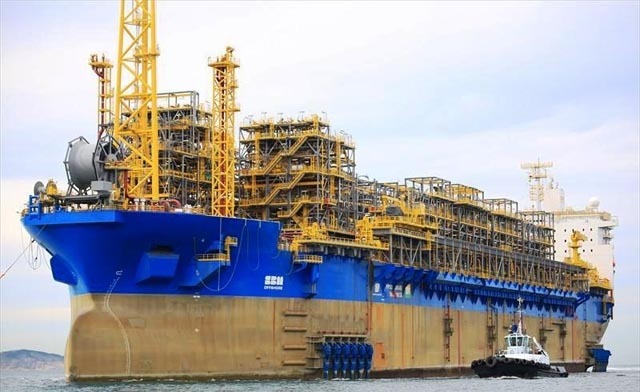
SBM will not be able to meet all the demand for FPSO's that will be required by Petrobras and Exxon for the development of fields in Brazil and Guyana
Due to the large expansion of oil production in deep waters, Petrobras and Exxon Mobil compete for a limited number of large floating platforms. Petrobras postpones the delivery of bids for chartering the Mero 3 FPSO to March.
According to the president of SBM Brasil, Eduardo Chamusca, the company will not be able to meet all the demand for FPSO's that will be required for the development of fields in Brazil and Guyana by the oil companies.
The North American Exxon has a more flexible business model that involves contracting more than one ship in replicated projects. The Brazilian oil company has contracting limitations imposed by the State-Owned Companies Law.
“What's happening today is that oil producers are all going to want FPSOs at the same time, and there won't be enough companies to do them,” said the executive in an interview from his office in Rio de Janeiro. “If you have a lot of customers, at some point FPSO manufacturers will be more selective.” concluded Chamusca.
Since the drop in oil prices between 2014 and 2016, the offshore production equipment industry has faced a drop in demand and an excess of platforms. But the FPSOs used in ultra-deep waters are a positive point outside the curve.
- Job and internship vacancies for Rio de Janeiro open today by Oceaneering
SBM and Modec are the only companies that lease the FPSOs that Petrobras and Exxon will need. The platforms can produce up to 240 barrels a day and cost up to $2,5 billion each to build. Daily rates for renting the ships range from US$400 to US$1 million.
After facing years of low demand, the company, which in 2016 did not even win a bid for FPSOs, being able to choose which contracts it wants to compete with clients such as Petrobras and Exxon is a radical change of scenery for SBM
After the four-year veto (suspended in 2018) that prevented the company from signing new contracts with Petrobras, SBM managed to close a contract for the Mero field
“Who will be successful, as in any capitalist market, will be the company that has a more pragmatic business model, like an Exxon of life”, said Chamusca. “We don't have a preferred customer, but we do have a preferred contracting model.”
- Macaé has new vacancies today by Ocyan for high school professionals
According to the executive, Brazilian legislation obliges Petrobras to use price as the main contracting criterion, while SBM prefers a business model that allows the replication of the project, reducing construction time. “Price is not always the best criteria,” he said.
Currently the SBM It has three platforms under simultaneous construction. Under ideal contracting conditions, allowing project rotation between departments, the number could be tripled to nine, he said.
Chamusca informs that Brazil is responsible for about one in every four of the 200 FPSOs in operation globally. The country should respond to half of the world's demand after auctioning several licenses for offshore exploration and production.
In 2020, Brazil should bid for six platforms, including the giant Búzios field. “We cannot participate in six tenders in one year, we will need to be selective”, he concluded.









And the battlefield, all that matters is victory...
"Friendly nation" I don't believe you can…
The potential of this research and…
There is already a language translation app…
Developed countries now need a helping hand…
I've never seen a website publish so much zucchini...
It must be sold to the Australians, nation…
Much better than playing a lot…